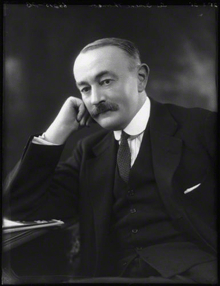Graeme Thomson facts for kids
Quick facts for kids
Sir Graeme Thomson
|
|
|---|---|
 |
|
| 26th Governor of British Ceylon | |
| In office 11 April 1931 – 20 September 1933 |
|
| Monarch | George V |
| Preceded by | Bernard Henry Bourdillon (Acting governor) |
| Succeeded by | Francis Graeme Tyrrell (Acting governor) |
| Governor of Nigeria | |
| In office 13 November 1925 – 17 June 1931 |
|
| Preceded by | Hugh Clifford |
| Succeeded by | Donald Charles Cameron |
| Governor of British Guiana | |
| In office 4 April 1923 – 31 August 1925 |
|
| Monarch | George V |
| Preceded by | Wilfred Collet |
| Succeeded by | Cecil Hunter-Rodwell |
| Personal details | |
| Born | 9 August 1875 |
| Died | 28 September 1933 (aged 58) Aden |
| Citizenship | British |
Sir Graeme Thomson (born August 9, 1875 – died September 28, 1933) was an important British civil servant. He worked for the British Admiralty, which managed the Royal Navy. Later, he became a colonial civil servant and served as a governor in several British colonies around the world.
Contents
Early Life and Career
Graeme Thomson went to school at Winchester College and then studied at New College, Oxford university. In 1900, he started working for the government as a civil servant. His first job was at the Admiralty, which was in charge of the British Navy.
Helping During World War I
When World War I began in 1914, Graeme Thomson quickly received promotions. He became the Civil Assistant Director of Transport in September 1914. By December of the same year, he was promoted to Director of Transports at the Admiralty. This meant he was in charge of moving troops and supplies by sea.
Leading Transport Efforts
His work was very important during the war. Winston Churchill, who was a key leader at the time, praised him. Churchill noted that over a million troops had been moved safely. He called Thomson "one of the discoveries of the War." Churchill said Thomson had organized huge operations never seen before.
A newspaper, the Adelaide Advertiser, described him in 1915. They said he looked like a "soldierly-looking man with the face of a diplomat." They also mentioned his "organising ability" and "judgment." In 1917, he was put in charge of the Directorate of Shipping. This department managed all shipping for both the Ministry of Shipping and the Admiralty.
Serving the British Empire
After World War I ended, the government's need for shipping management decreased. So, Thomson's job at the Admiralty was no longer needed. He then joined the Colonial Service. This was a branch of the British government that managed its colonies.
Governor Roles
In 1919, he became the Colonial Secretary of Ceylon. Ceylon is now known as Sri Lanka. He then became the Governor of British Guiana in 1922. British Guiana is now the country of Guyana.
In 1925, he was appointed Governor of Nigeria. His final role was as Governor of Ceylon again, starting in 1931. Sir Graeme Thomson passed away in 1933 in Aden. He was on his way home from Ceylon at the time. He had received a high honor, being made a Knight Grand Cross of the Order of St Michael and St George in 1928.
 | Isaac Myers |
 | D. Hamilton Jackson |
 | A. Philip Randolph |

